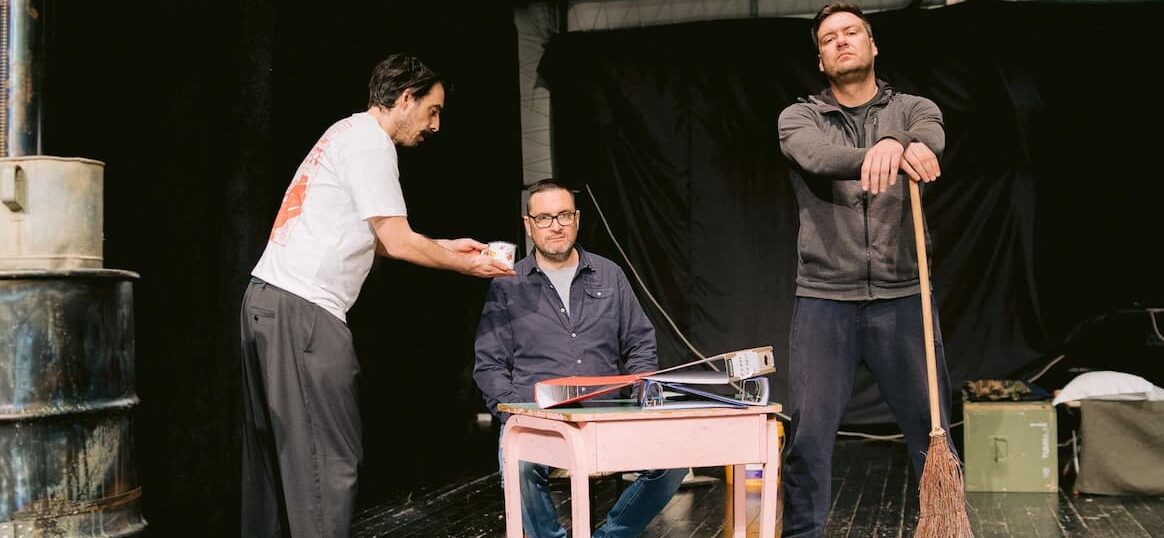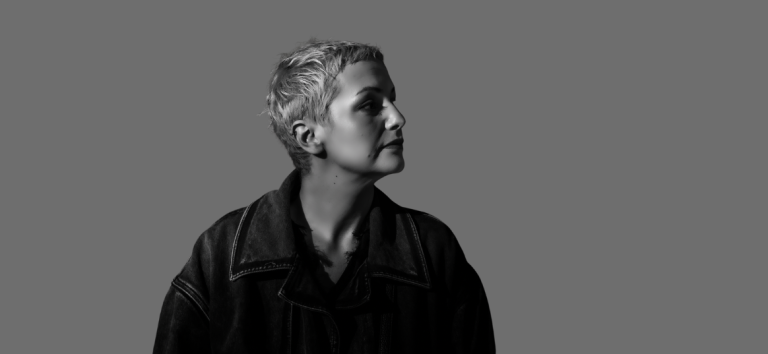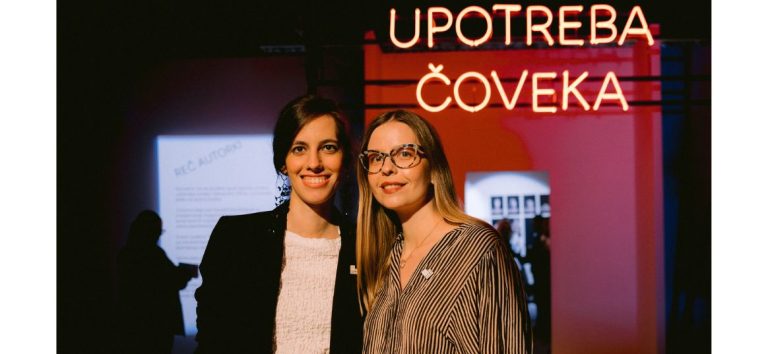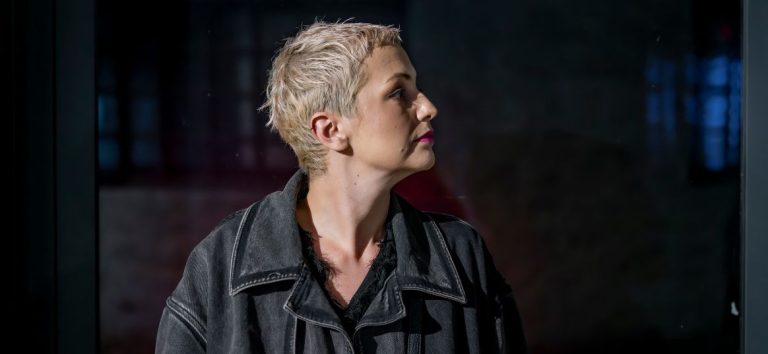The well-known team of ‘Državni posao’ (Government Job) probably doesn’t need a special introduction, because they’ve been introducing themselves to us every day with now more than 1,700 recorded episodes of their comedy show. The legendary trio and the archive department workforce are Đorđe Čvarkov (Dimitrije Banjac), Dragan Torbica (Nikola Škorić), and Boškić (Dejan Ćirjaković), and for 10 years they have been entertaining us with satirical exchanges straight from their office.
Now, as part of the Migrations programme, the European Capital of Culture will host the premiere of the play ‘The Great Migration of Archivists’, at the cultural and educational institution Cultural Centre ‘Mladost’ in Futog on 8 April at 8 p.m., and we wholeheartedly recommend you see it.
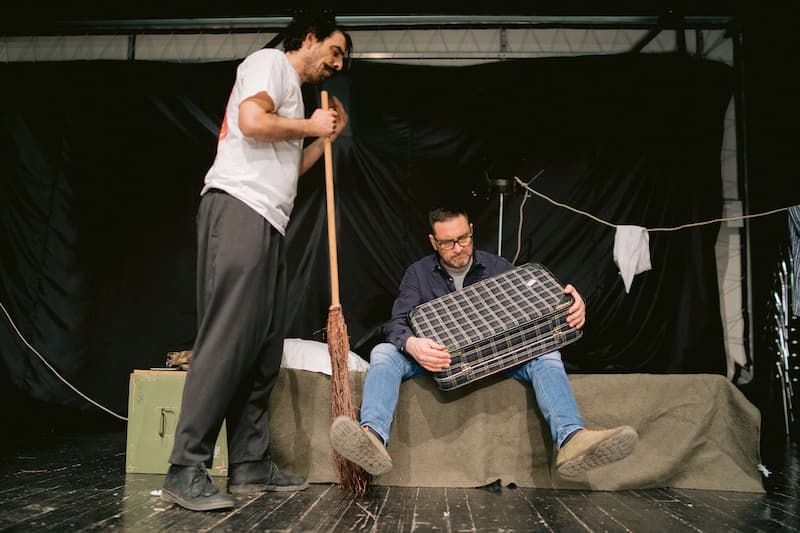
Hilariously entertaining and witty Čvarkov, Torbica, and Boškić will make you cry tears of laughter at the unfortunate situation they find themselves in. Due to the unexpected circumstances, they are removed from their natural environment, the office in which they work ‘hard’, to a fringe department – a warehouse in a small town on Fruška Gora. Our heroes find themselves in a new unknown environment, in a storeroom where they are also forced to live, not suited for three people to stay in, while at the same time they cannot avoid their duties because they need to work if they want to get permission to return to the ‘home office’.
We grabbed a moment between their daily, intensive preparations for this play to talk briefly with the protagonists and find out how they experience the injustice that befell them and how they like to spend their time when not at work.
How do you view the migration processes in multicultural Novi Sad and its general surroundings, why do you think people leave this area, or come here to live?
Čvarkov: Let me tell you, personally I don’t mind, but a lot of people moved in here…
Torbica: Heh, we all came from somewhere…
Boškić: That’s true, but multiclutr… multiclutur… that multi… You know what I mean… That was always the best thing about Novi Sad…
Torbica: And Šipovo…
What are the strengths and weaknesses of the ‘mixing’ of cultures? How pronounced are these divisions in Vojvodina?
Čvarkov: No, there are no divisions… It’s nice to attend two Christmases, two Easters, two May the Firsts… Only… there is one of my neighbours… Štrbac… They have a ‘gathering’… And it gets very loud…
Torbica: Now that’s a real festivity, Čvarkov… And we’ll do it again…
Boškić: Uncle Đorđe is right, there are no divisions… I have travelled a lot, and I know what different cultures are… Here, in my building, we all get along very well… We are all old Novi Sad residents or the ones with money… Mostly, we all feel that way…
We heard that you recently went through the migration process yourself because you were allegedly ‘transferred’ from the office where you worked for years to a storeroom on Fruška Gora.
How did that happen and how challenging is it for you to adapt to the new working conditions?
Boškić: That’s right, we were forced to move to that ‘Šuljam’, because of some internal matters in our department… And I have to tell you, it was hard for me, but I see it as a challenge… Because, as my dad always says: ‘When there’s a will, there’s a way’.
Torbica: Come on, Boškić, you cried for 5 days and you wouldn’t let go of your mom’s photo… Let me tell you, after doing the rough plaster finish at the Munich Cathedral, I don’t find anything too difficult.
We heard that you recently went through the migration process yourself because you were allegedly ‘transferred’ from the office where you worked for years to a storeroom on Fruška Gora. How did that happen and how challenging is it for you to adapt to the new working conditions?
Boškić: That’s right, we were forced to move to that ‘Šuljam’, because of some internal matters in our department… And I have to tell you, it was hard for me, but I see it as a challenge… Because, as my dad always says: ‘When there’s a will, there’s a way’.
Torbica: Come on, Boškić, you cried for 5 days and you wouldn’t let go of your mom’s photo… Let me tell you, after doing the rough plaster finish at the Munich Cathedral, I don’t find anything too difficult.
We also heard that can only return to your office if you work hard on Fruška Gora… How do you comment on that?
Čvarkov: You see, let me tell you… that’s true, but I didn’t mind it… except that it’s in Srem… I don’t like to go across the Danube… And I’ll just tell you – I’m glad we proved that the director was wrong…
Do you consider yourself an exemplary worker?
Čvarkov: YES!
Boškić: YES!
Torbica: YES!
For the past 10 years, we have eagerly followed events at your work, mutual relations with colleagues, arguments, differences of opinion, as well as the adversities you faced. Do you like the popularity you have gained in the neighbourhood?
Čvarkov: I already gained popularity back in 1978 when I brought down 996 cones with the bowling club ’KK Senta’ and became the champion of the Northern Bačka district, me and Čaba…
Torbica: I am a multiple winner of the Lika all-around… discipline hay pole…
Boškić: Popularity suits me.
Mr Čvarkov, how different would your life in Vojvodina be if there were no newcomers? Would it be simpler and easier?
Čvarkov: That is a big question that even the smartest people in Vojvodina failed to answer… As one of my great friends, a professor at the Faculty of Agriculture at the University of Novi Sad, would say… Be quiet, Đorđe, who else would bend the rebar…
Torbica: Or roll the pie.
What is the most valuable thing that your older colleagues have taught you?
Boškić: They taught me work habits and how to immensely respect work discipline… In a word, they taught me the trade…
What are the essential differences between the local mentality and the people from your homeland? What human trait, Mr. Torbica, throws you out of step?
They rarely socialise.
There’s no communal fieldwork.
There’s no village gathering.
No one can sing properly.
All their songs have music.
There’s only one type of sheep.
Mud and dust everywhere.
…. (lists off things for another half hour)
17. They don’t say anything to your face.
18. And to top it off, there isn’t a single hill… I had to pour dirt about 40 metres high on my lot to save me from going crazy… Land configuration, that’s where those differences come from… Otherwise, they’re lovely people…

You often point out that everything used to be better, that everyone knew how things are done. What has changed in our country?
Čvarkov: The youth… It’s not the same… Young people today are insane…
Torbica: And they have it all…
Čvarkov: Everyone is driving a car, and I’m sitting on buses after so many years of work…
Torbica: I used to walk 37 kilometres to school… Uphill… Both ways… And these ones today don’t even want to take out the trash…
Čvarkov: Internet is evil!
Torbica: I agree!
What is the happiness and meaning of life for you?
Torbica: Some bread and a baked turkey!
Čvarkov: And cracklings… With some mayonnaise…
Boškić: Travelling, meeting new cultures…
Are you proud of Novi Sad becoming the European Capital of Culture this year, and do you attend cultural events in Novi Sad?
Čvarkov: Of course… Novi Sad was always the capital for me…
Torbica: You mean the cultural capital?
Čvarkov: …
Boškić: I went to Noise Destruction… Great times…
Torbica: Hahaha, ’I’ll set it on fire’…
How and where do you like to spend your time in Novi Sad?
Čvarkov: With my family…
Torbica: Hanging with people in front of the agricultural pharmacy…
Boškić: Taking walks at the quay… But not where it smells like eggs… You know what I mean…
Author: Marina Marić
Photo:Vladimir Veličković

